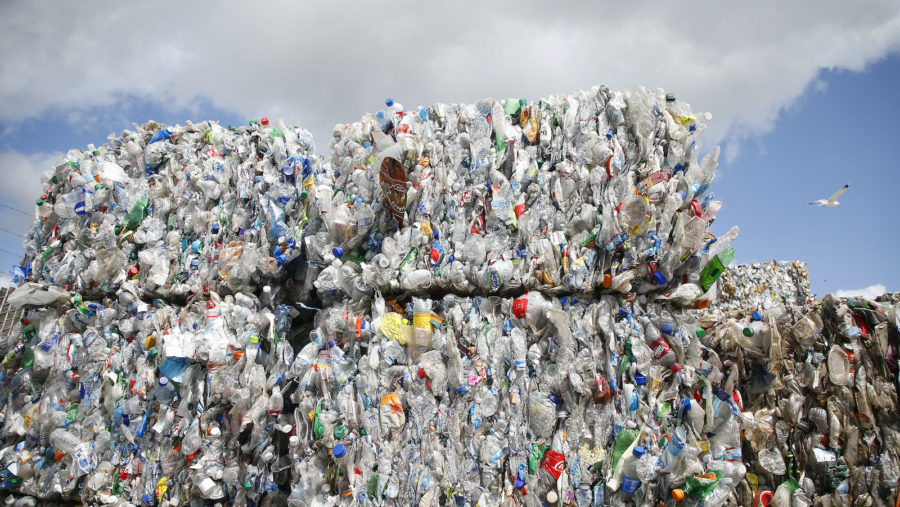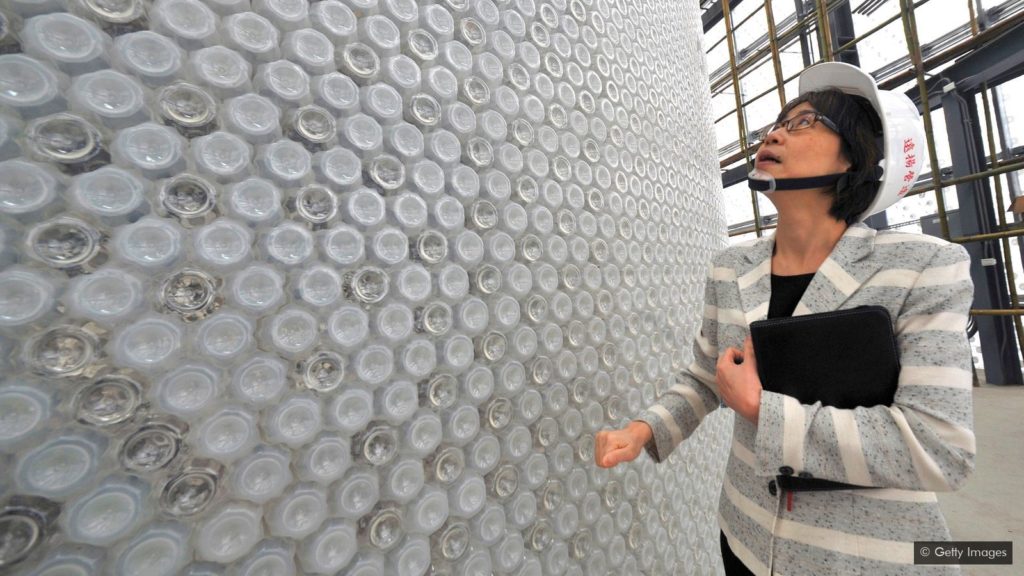By Sibele Cestari for BBC Future Planet
What if we turned the world’s growing wastelands of disused plastics into a new kind of sustainable building?

The disposal of plastics is a highly visible global problem – from the highest mountains to the deepest ocean trenches, waste plastic seems inescapable. In natural conditions, plastics are nearly indestructible, and yet they are discarded worldwide on a large scale: the world produces around 359 million tonnes of plastics each year. The environment cannot address their disposal at a speed fast enough to prevent harm to living beings.
This has led to a consensus that plastics are an unsustainable material. And yes, plastics are certainly an enormous problem, but they don’t necessarily have to be.
The main issue is not with plastic as a material, but with our linear economic model: goods are produced, consumed, then disposed of. This model assumes endless economic growth and doesn’t consider the planet’s exhaustible resources.
But there are many ways we could set plastics on a different lifecycle – and one that I have been working on is turning disused plastics into a hardy, reliable and sustainable building material.
Most people believe that plastics recycling is severely restricted: that only a few types can be recycled at all. This is unsurprising. The proportion of plastics that are recycled is minimal. The UK, for example, uses five million tonnes of plastic each year, and only 370,000 tonnes are recycled each year: that’s just 7%.

Plastics are strong, durable, waterproof, lightweight, easy to mould, and recyclable – all key properties for construction materials
But all polymers are, technologically, 100% recyclable. Some of them have the perfect cradle-to-cradle lifecycle: they can be used again and again to produce the same goods. Some plastics can be reused just as they are by shredding an object into flakes, melting it, and reusing. Read more from BBC





